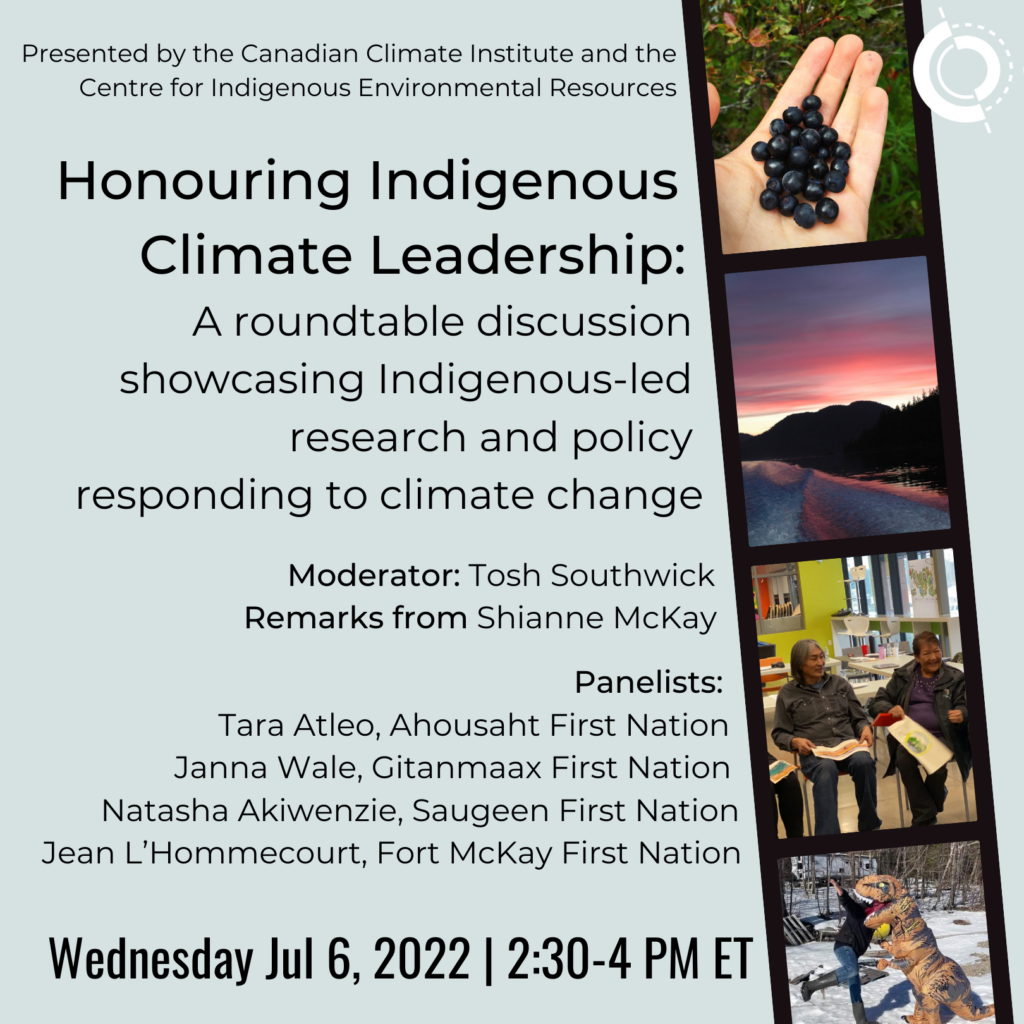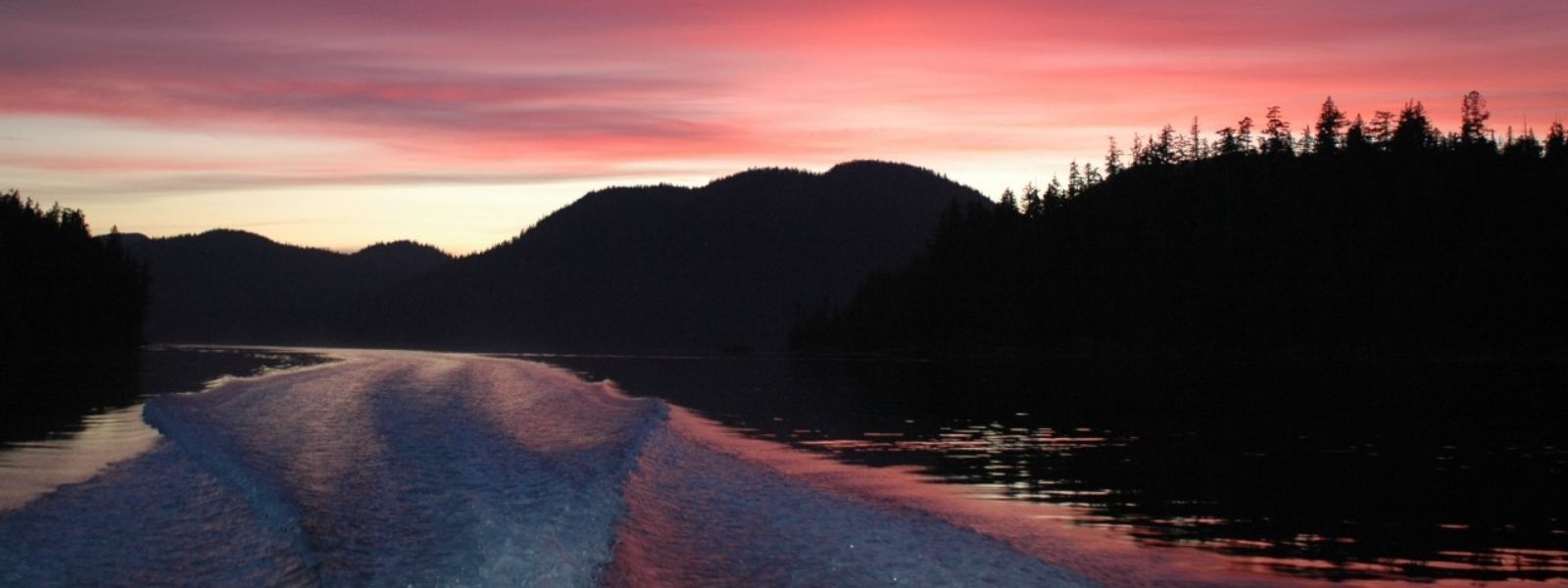Presented by the Canadian Climate Institute and the Centre for Indigenous Environmental Resources.

Indigenous Peoples are on the front lines of a rapidly changing climate, and are leading the development of land-based and culturally rooted climate solutions in response. To amplify Indigenous voices, research, and innovations at the cutting edge of climate research and policy, the Canadian Climate Institute has published four new case studies in our Indigenous Perspectives series showcasing the work of Indigenous researchers and Knowledge Holders.
This roundtable discussion seeks to highlight the contribution of these case studies and share them with a broader audience of climate researchers and policy makers in all orders of government, in the hopes of strengthening the impact and effectiveness of climate policy moving forward.
This discussion will include how Indigenous self-determination and Indigenous knowledge are integral to effective climate policies. You’ll hear about:
- salmon restoration projects inspired by the place name Cuuxʷnitapi (tsoo-kwin-it-app-eh, which translates to “coho jumping”), in Ahousaht First Nation (Vancouver Island, British Columbia),
- knowing when to stop extracting, and the shift from fishing to shoreline cleanups in Georgian Bay by the Bagida’waad Alliance, Saugeen Ojibway Nation (Ontario),
- co-reclamation work with a two-roads approach in Fort McKay Nation (Alberta).
As well, this discussion will include calls for policy change by government, including increasing ecological and social resilience by considering traditional seasonality and Indigenous place names. We’ll tackle questions of decolonization and decarbonization. And we’ll unpack “two-eyed seeing,” a concept where Indigenous and Western knowledge systems can complement one another’s strengths to help to inform and create holistic policies for the benefit of all.
The Canadian Climate Institute is committed to ensuring that our work supports Indigenous self-determination, and that Indigenous ways of knowing, being and doing are reflected in policy recommendations. We recognize that this work must be led by and for Indigenous people, and welcome this opportunity to showcase leading practitioners—including those featured in this roundtable discussion. The moderator, speakers, and panelists are as follows:
- Moderator: Tosh Southwick, Board of Directors, Canadian Climate Institute
- Remarks from Shianne McKay, Senior Project Manager, Centre for Indigenous Environmental Resources
- Panelists:
- Tara Atleo, Ahousaht First Nation
- Janna Wale, Gitanmaax First Nation
- Jean L’Hommecourt, Fort McKay First Nation
- Natasha Akiwenzie, Saugeen First Nation
